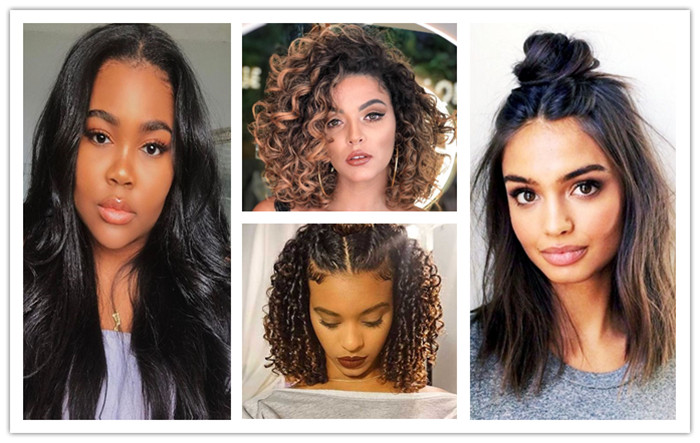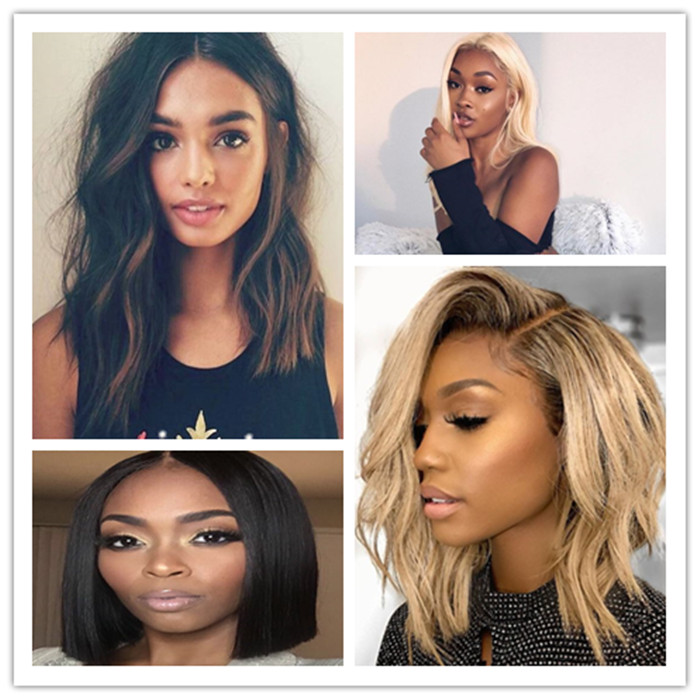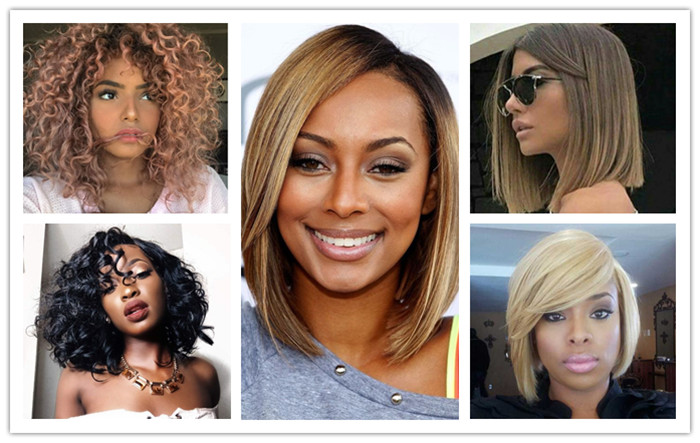Wearing a wig doesn’t mean I don’t love my natural hair. Just like the same way that wearing clothes doesn’t mean that I am ashamed of my body, or wearing makeup means I am embarrassed by my bare face.
 photo credit:google.com
photo credit:google.com
My wigs are part of my self-expression. It is my way of self-love. If I feel playful, you’d see me wearing my deep curly wig; if I am having an awful morning, then a kick of gorgeousness from my natural wavy wig picks me up and helps me get through the day. Sometimes I go blonde or wear a short wig when I am feeling bold and adventurous, seeing the look of surprise on my friends’ faces is priceless.
Underneath the wig, I care for my naturally kinky hair. I give it time to breathe and I go wig-free for days. I nourish and pamper it with the mildest of shampoos and conditioners. I am careful not to pull it too tight, I give my scalp a massage from time to time. The wigs also help protect my real hair. While I’m wearing my wigs, my hair is safely tucked. It helps my hair thrive, maintain length, and be healthier in general. It gives my hair a breather from the constant styling my real hair needs. That includes twisting it weekly and slicking it back in the mornings.
There are some purists in the natural hair community who believe that wearing anything other than your natural coils means you are ashamed of your real hair, that you think you’re own afro is ugly thus you’re hiding it, that you don’t love your “true” self enough. And I understand them. For years, the pursuit of the perfect hair has been the Achilles’ heel for many black women.
According to studies, in 15th century Africa, hairstyles were used as indicators of a person’s marital status, age, religion, ethnic identity, wealth and rank within the community. Once enslaved, hair became more a matter of the labour one was forced to do. For instance, field slaves often hid their hair, whereas house slaves had to wear wigs similar to their slave owners, who also wore wigs during this period.
This history that traces back to slavery created a mindset among black women that the afro is not desirable, that it should be hidden or straightened. This lead to countless tales of damaged scalps and hair loss because of hair straighteners and the obsessive use of wigs and weaves.
 photo credit:google.com
photo credit:google.com
However, that’s not my case. I stare at my ‘fro from the mirror and what I see is hair that’s uniquely beautiful. And I don’t just look at my hair like there’s a need to single it out, but I look at myself as a whole. I see someone whose face radiates with joy, someone who is created without rival, someone who is one-of-a-kind in the world. Then there are days when I want to wear wigs. Not because I have a deeply embedded insecurity or a false sense of beauty, but simply because I think life’s more fun when you get creative and experiment with hairstyles.
I felt that the natural hair movement came with a large amount of judgment and shade thrown to black women who still had relaxed hair or weaves. Sometimes you’d feel the pressure to join the movement because who wants their blackness and authenticity questioned?
So I ask myself, am I a fraud for covering my natural hair and not publicly parading daily the kinkiness of my coils? There is a growing notion that black women with natural hair as the ultimate black queen, earth goddesses, mothers of the race.
I wholeheartedly agree that we need to have a continuing discussion about beauty and hair health. I cannot stress enough– it is absolutely essential to care for your natural hair under the wig. This should be done not only by proper grooming and maintenance but also through proper nutrition. Our real hair’s condition can be a reflection of our body’s health.
I remember seeing a video this morning about Lyn Slater, a 64-year-old fashion model, and blogger who calls herself an accidental icon. She said in an interview, “I think it is very important to know who you are, to spend time thinking about who you really want to be, and finding a way to express that.”
 photo credit:google.com
photo credit:google.com
For me, if I would be ditching wigs to be more “natural”, then it would be more of a lie than being true to myself. Because I am a person who loves flavor, change, and experimentation. This is how I express my creativity. I’m proud to be a black woman, and in the same way that my red lipstick and false lashes are accessories I use in my self-expression, so is how I wear my hair. That’s all it is—an accessory, a small part that tells something about me but doesn’t define me as a whole. There should not be a spectrum of blackness when it comes to hair, one’s hairstyle does not make someone more or less blacker than another, as women we’re multi-layered and naturally, our relationships with our hair and other parts of our bodies are also.
There are seasons that I go natural and it makes me feel free in a lot of ways. I no longer had to spend hours in a salon getting my hair permed and set. But wearing wigs gives me another kind of freedom too. Freedom from the same, boring hairstyle I wear every day. Freedom from my weekly, six-hour hair routine. Freedom from having to hold the weight of my culture on my curls and always present myself as the black girl ideal. No matter how I wear my hair, or whether you can see my real hair at all, what matters is I am being real to myself. My wigs don’t cover up who I am— they only proudly showcase my self-love.
Famous American poet Maya Angelou says it better, so I will just end it here:
“A woman in harmony with her spirit is like a river flowing.
She goes where she will without pretense
and arrives at her destination
prepared to be herself and only herself ”
